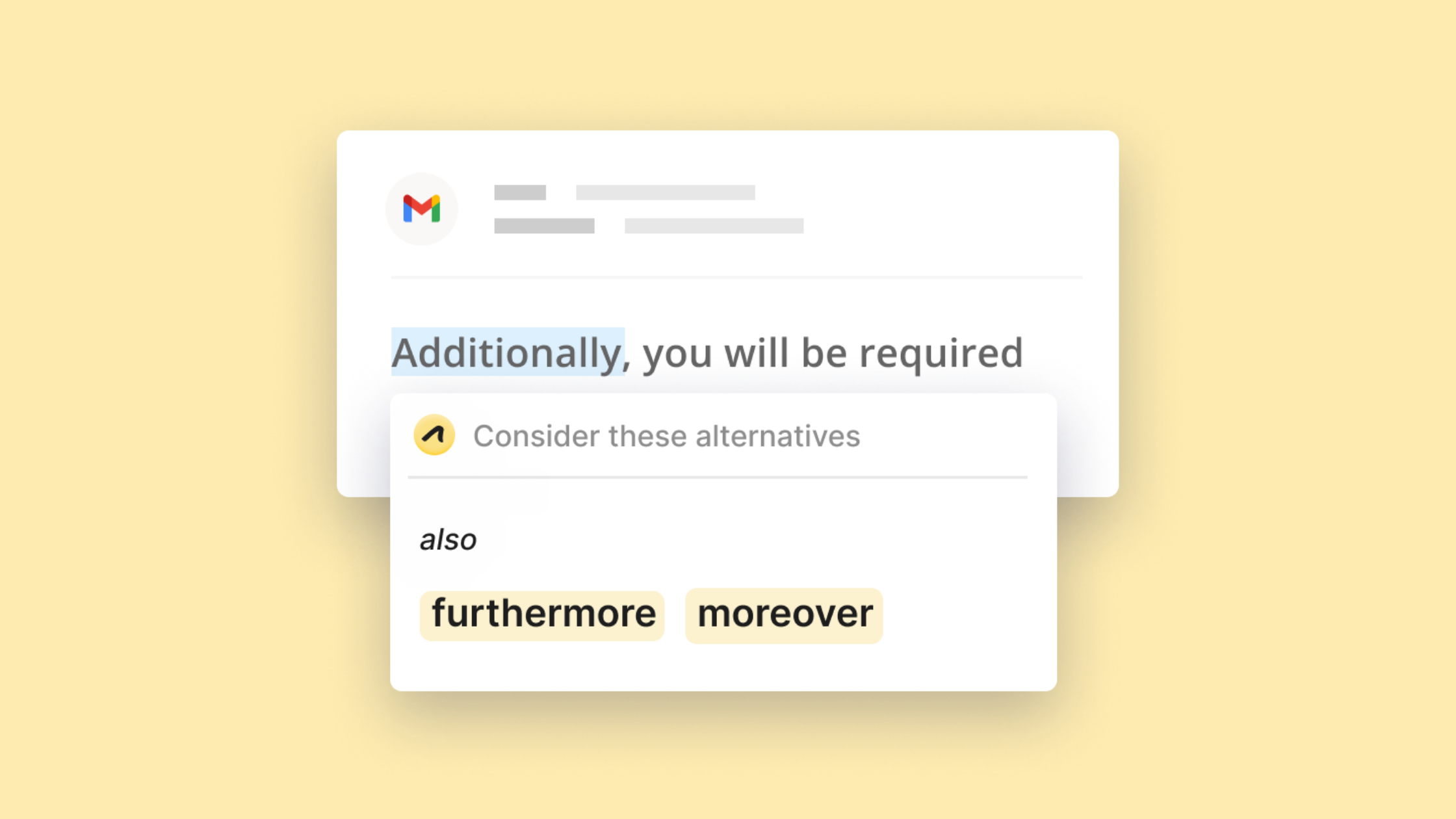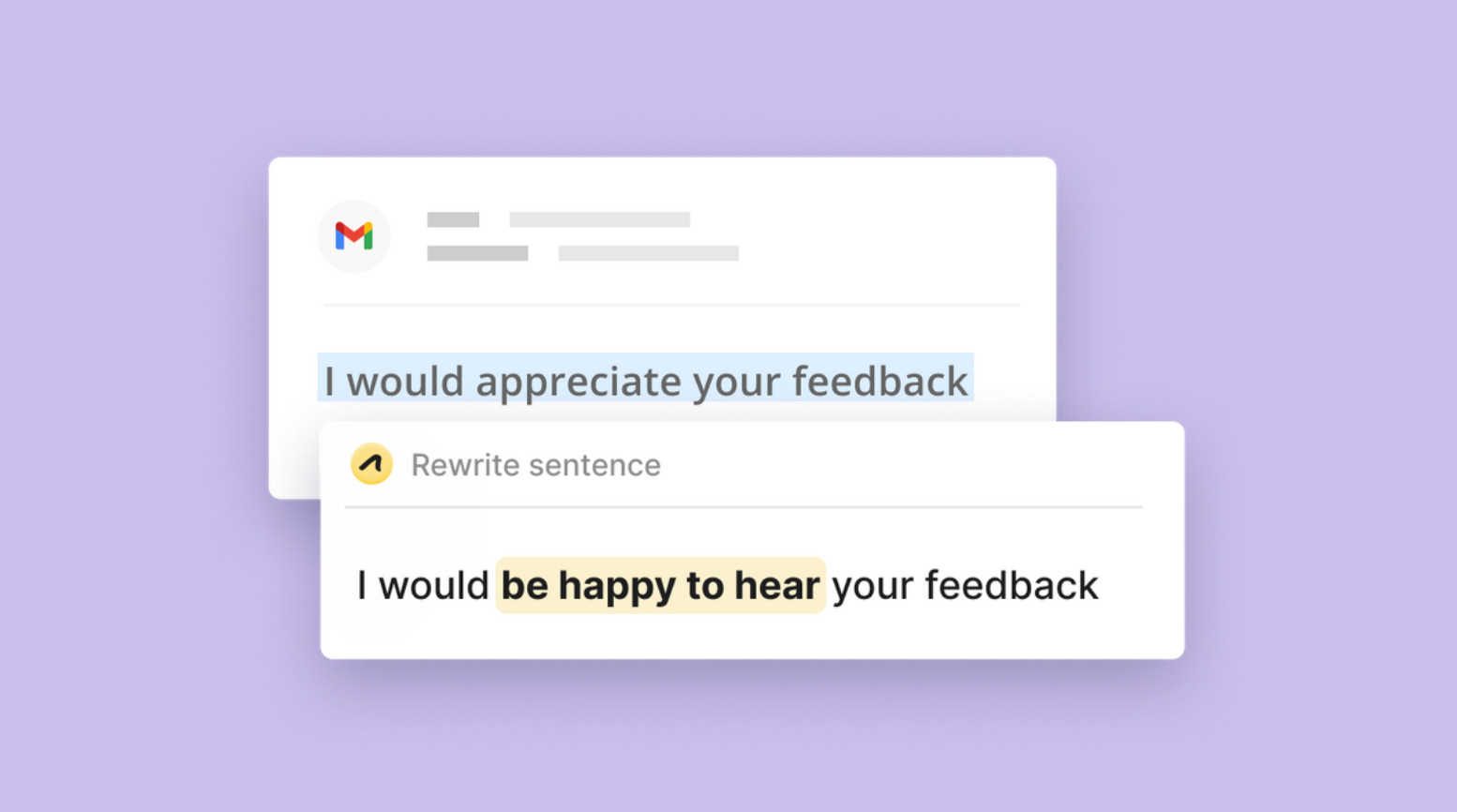How to make your sentences longer (without adding fluff)
Under word count? Learn how to make your sentences longer (and stronger)

We've written several articles about how to write concisely. These tips are handy in circumstances where every word counts, like writing a tweet or landing page copy. However, there may be times when you want to make your sentences longer instead. If this is the case, keep reading.
Unlike some blogs, we're not going to tell you to add meaningless words just to beef up your word count. That's a waste of your time, and your reader's.
When you’re trying to reach the word count on an essay https://t.co/svvoSmdYNt
— Lindsey - #80 🇱🇻 (@JacketsLindsey) May 25, 2020
Instead, we'll explore how to rework sentences to increase your writing quality and your word count. Let's get to it.
1. Connect ideas with conjunctions
If you want to make your sentences longer, conjunctions are your best friends. They're sometimes referred to as "glue words" because they connect ideas together. There are three types of conjunctions: coordinating, subordinating, and correlative.
Coordinating conjunctions
Coordinating conjunctions tend to link words or clauses of equal importance. The English language has seven of them: for, and, nor, but, or, yet, and so. Some people use the acronym "FANBOYS" to remember them.
Whenever you use a coordinating conjunction to form a compound sentence, you must place a comma before it.
Annie likes to bake, but she's not good at it.
I slept through my alarm, so I was late for work.
Subordinating conjunctions
You can also use subordinating conjunctions to elongate your sentences. They're used to connect dependent and independent clauses. Here are some examples:
Although Cedric owns a motorbike, he's never used it.
I didn't complete my report on time because my laptop broke.
Correlative conjunctions
This last category refers to conjunctions that come in pairs. As the name suggests, they connect parts of a sentence that correlate with one another. Some common examples are "neither/nor" and "not only/but also".
Katrina speaks neither French nor Spanish.
Both the teacher and the assistant called in sick.
2. Use transitional phrases

If you've ever written an essay or academic paper, you'll be familiar with transitional phrases. They are often placed at the start or in the middle of a sentence, and are used to show relationships between ideas.
Transitional phrases have different purposes (as shown below), so be careful not to misuse or overuse them.
| Purpose | Transitional phrase examples |
|---|---|
| To compare | in addition, furthermore, as a result |
| To contrast | alternatively, however, on the contrary |
| To emphasize | particularly, especially, above all |
| Show cause/effect | Due to this, therefore, as a consequence |
| To conclude | finally, in conclusion, to summarize |
3. Give examples
If you need help getting your point across, provide an example. Using familiar things to explain new concepts is one of the best ways to make your writing easier to understand (and longer).
For example, in Malcolm Gladwell's book "The Tipping Point", he uses the analogy of a virus to explain how ideas can be infectious.
Phrases like "including", "for instance", and "such as" can help introduce an example.
Retailers providing essential services, such as supermarkets and pharmacists, will remain open.
There are more young women joining male-dominated fields, like law and engineering.
4. Be descriptive
This tip is for any creative writers out there. Using descriptive language will make your work more engaging and easier to visualize. You may even evoke a strong emotional response (like joy, sadness, or confidence).
You can start by incorporating more adjectives or adverbs. If you feel ambitious, add figures of speech like hyperbole and similes. Just be careful not to go overboard with the descriptive language — you don't need seven adjectives to describe a noun when one or two would suffice.
5. Replace contractions
This tip is probably the most straightforward. Obviously, changing a contraction to its full form is going to make your sentences longer. But removing them can also help make your writing sound more formal.
Here are some common contractions to watch out for:
- won't --> will not
- you're --> you are
- it'll --> it shall / it will
- 'twas --> it was
- shouldn't've --> should not have
6. Expand sentences with a paraphrasing tool

If you're short on time or ideas, consider using an online paraphrasing tool. They'll suggest different ways to rewrite your text according to your preferences (like making a sentence simpler, shorter, or more formal).
Outwrite actually has a rewriting goal specifically for expanding sentences. It's one of our many Pro features. Head to our website to check it out!

